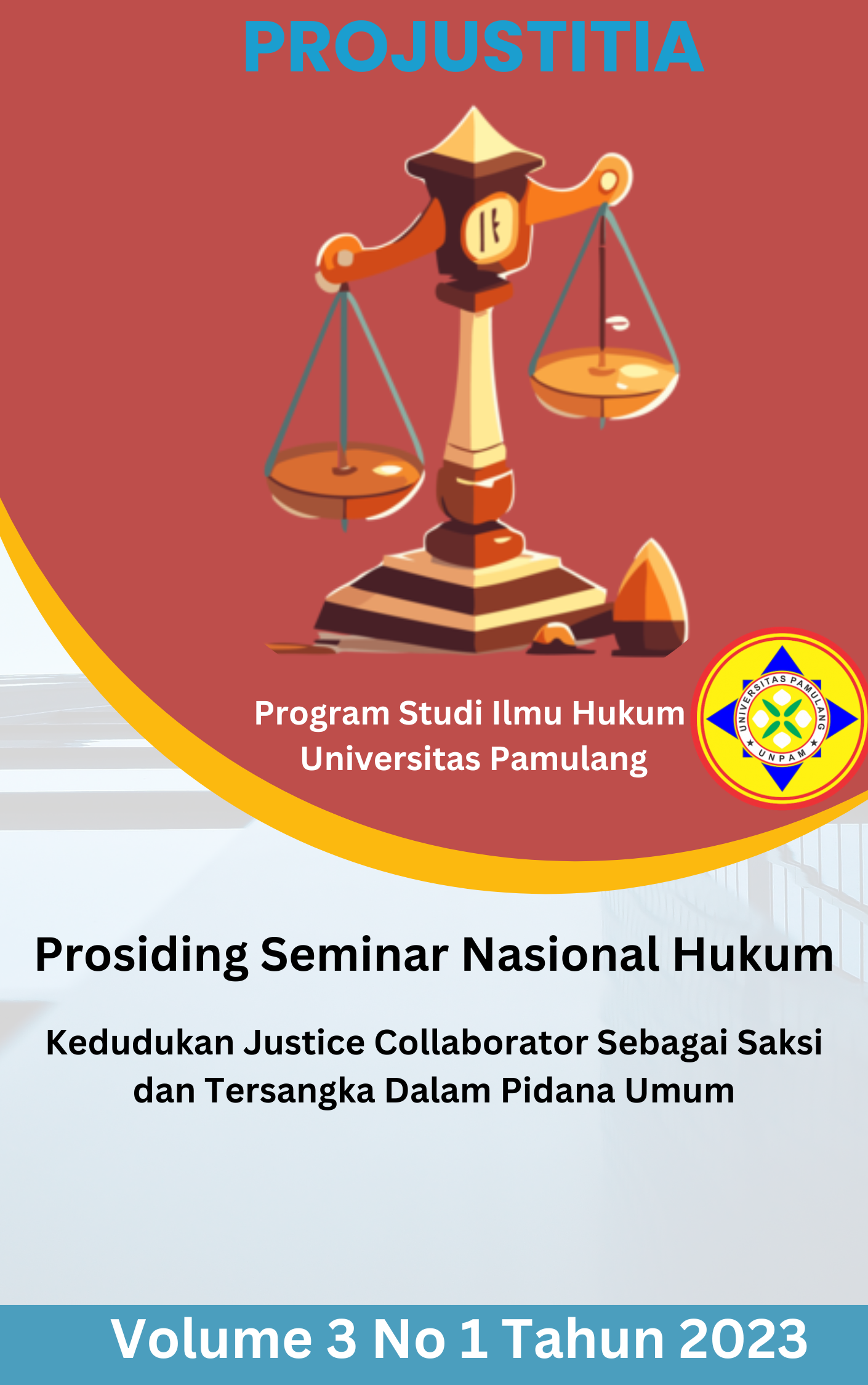PROBLEMATIKA NORMATIF YURISDIKSI TERHADAP TINDAK PIDANA SIBER DALAM PERUNDANG- UNDANGAN INDONESIA DENGAN KONVENSI DEWAN EROPA 2001
Abstract
This research reveals in more detail about state jurisdiction in dealing with cybercrime. The development of crimes or mayantara crimes without being followed by legal developments will make law enforcement unbalanced. Therefore, in addition to examining the criminal jurisdiction contained in Law no. 19 of 2016 concerning Amendments to Law no. 11 of 2008 concerning Information and Electronic Transactions, also discusses the 2001 European Council Convention which provides an explanation of major crimes and jurisdiction in accordance with International Law. The basis for regulation of criminal jurisdiction is contained in the Criminal Code (KUHP) Book I Article 2 to Article 9 and Article 2 of Law Number 11 of 2008 concerning Information and Electronic Transactions which adhere to the territorial principle, the principle of the state flag of the ship and the principle of the state aircraft. registered, national principles, protection principles, universal principles, and dual criminality principles. Meanwhile, the regulation of criminal jurisdiction over cyber crimes in South Africa is contained in Act no. 25 of 2002 concerning the Electronic Communication and Transaction Act, 2002 which adheres to the principles of the 2001 European Council Convention, namely subjective territorial principles, objective territorial principles, extra territorial principles, and national principles. the principle of the state flag of the ship, and the principle of the registered state aircraft. The regulation of criminal jurisdiction in Article 2 of Law Number 11 of 2008 concerning Information and Electronic Transactions is relatively short and concise so that in its implementation it requires interpretations and deviations from the principles of jurisdiction in public international law and the theory of locus delicti in criminal law. Law enforcement on cyber criminal act is not apart from jurisdiction, particularly space of validity of criminal law in a place (territorial jurisdiction). Widespread locus delicti potential in cyber criminal act will be give rising to problems in relation to principles of jurisdiction or the incidence of jurisdictional conflicts. The validity of universal jurisdiction requires states cooperation starting by any ratification of cyber criminal act. Given similarity of law enforcement, then minimize the use of legal loopholes due the state jurisdiction. This research was conduc ted in several places, such as the Pamulang University library and the city library. These places can provide primary data for writing this research. In this study also traced secondary data obtained from the library. Interviews were conducted with various informants to fill the lack of author data, especially international legal experts, police investigators, and other legal practitioners who control this cybercrime case. This study uses a qualitative normative juridical method. This normative juridical research refers to existing legal norms. Qualitative research was used to analyze the data obtained, both from the results of literature reviews and the results of interviews. The results of the study concluded that: (1) cybercrime regulation in the Budapest Convention consists of 9 (nine) categories of crimes committed intentionally and without rights); (2) according to the ITE Law, Indonesian jurisdiction has territorial principles and principles of protection: (3) both the ITE Law and the Budapest Convention use territorial principles in their jurisdiction, and the Budapest Convention has national principles, ship flag principles, registered aircraft principles, which are not owned by the ITE Law. ITE, apart from that the ITE Law has a principle of protection, which the Budapest Convention does not have.1
Keywords : UU ITE, Cybercrime, European Council Convention


